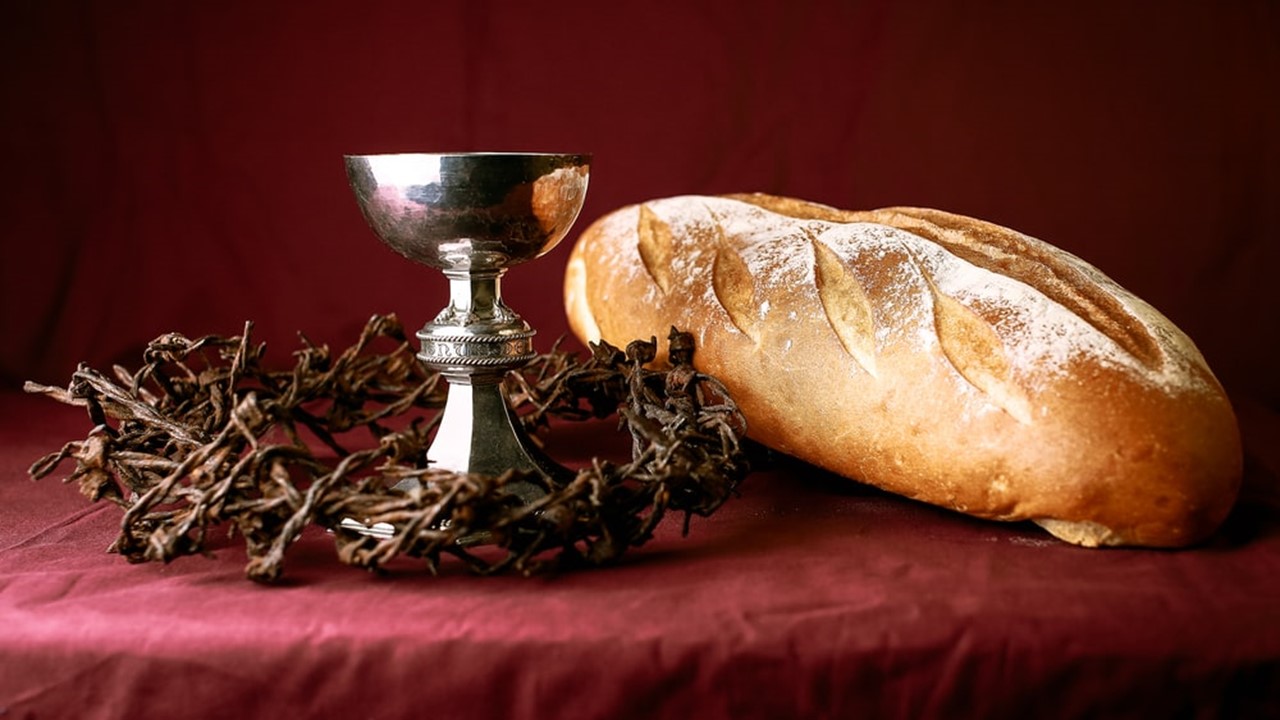My four-year-old son is naturally loud and boisterous, and almost every time he approaches communion and is handed the cup, he speaks out loud for the whole congregation to hear with a big smile on his face, “Is this blood?” I bend down place my hand on his shoulder, and without articulating all the theological eucharistic nuances, I respond, “Yes, the blood of Jesus Christ your Saviour.” The truth be told, that is all we need to know, as Jesus himself said, “For my flesh is real food and my blood is real drink. Whoever eats my flesh and drinks my blood remains in me, and I in them.” (John 6:55–56; ESV). These verses are taken from John’s Gospel, yet John excludes the Last Supper… or does he?
The Gospel of John is the most eucharistic (referring to the Lord’s Supper) of the Gospels. There is no Last Supper, but all the eucharistic theology is there, and not only that, but it also develops it in full-bodied-bloom, beginning at the wedding feast in Cana (John 2:1–12) where Jesus turned water into wine. Jesus transformed one substance into another: from the ordinary to the special. The ceremonial washing jars of the old covenant became the vessels for something new and extraordinary. Later in John 6, Jesus fed 5000 people by miraculously multiplying five small barley loaves and two small fish! Considering Jesus’s discourse in John 6:25–59 and the Last Supper in the Synoptic Gospels, it’s difficult not to see that two of the seven signs in John’s Gospel develop eucharistic theology.
The Last Supper in all the Synoptic Gospels shares four primary elements, namely: (1) the Passover festival, (2) the new covenant proclamation, (3) words of institution, and (4) the betrayal. It might surprise you that John 6 includes all four elements as well.
- The Passover Festival
John 6:4 arranges the entire narrative and discourse of John 6 around the time of the Jewish Passover Festival. The Gospels of Matthew, Mark, and Luke position the Last Supper as the Festival of Unleavened Bread which starts on the 15th day of Nisan, the same month as Passover. The Passover is mentioned in all three synoptic versions (Matthew 26:17–19; Mark 14:12, 14, 16; Luke 22:7–8; 11, 13, 15).
- The New Covenant Proclamation
John creatively weaves the new covenant proclamation into his account. Here, Jesus reminds his audience of their ancestors who ate the manna in the wilderness and that it was Moses who gave them bread from heaven. Yet the ancient Israelites died. The Father, however, gives the new true bread from heaven. Jesus said that people who ate this bread would not die, but live (John 6:30–33; 49–50). He identified this true bread as himself, “I am the living bread that came down from heaven. Whoever eats this bread will live forever. This bread is my flesh, which I will give for the life of the world.” (John 6:50). Do you see the proclamation of the new covenant and the comparison between the old and the new? The Synoptic Gospels have variations of the following, “This cup is the new covenant in my blood, which is poured out for you” (Luke 22:20; See Matthew 26:28–29; Mark 14:24–25; cf. Luke 22:17–18).
- Words of Institution
The Synoptics have what I will call, the words of institution which are formulated like this, “Take and eat; this is my body … Drink from it, all of you. This is my blood of the covenant” (Matthew 26: 26–28, Mark 14:22–24, Luke 22:19–20). John’s Gospel offers a fully developed discourse on this, but for brevity’s sake, I highlight the following: “Jesus said to them, ‘Very truly I tell you, unless you eat the flesh of the Son of Man and drink his blood, you have no life in you. Whoever eats my flesh and drinks my blood has eternal life, and I will raise them up at the last day. For my flesh is real food and my blood is real drink. Whoever eats my flesh and drinks my blood remains in me, and I in them.’” (John 6:53–56). All four Gospels have the words of institution, even if John’s Gospel is a little different.
- The Betrayal
Jesus warned that there was one among the twelve disciples who would betray him, and John identified him as Judas, the son of Simon Iscariot (John 6:64–65; 70–71). Likewise, Jesus also foretells Judas’s betrayal in the Synoptic Gospels (Matthew 26:23–25, Mark 14:18–21, and Luke 22:22–23). Considering that Jesus changed water into wine and multiplied five loaves of bread in John’s Gospel and that his eucharistic discourse shares the four elements from the Last Supper, could there be something very special going on as we celebrate communion. If we take Jesus’s words literally as I think we should, how might his real presence in communion change the way we participate in the Lord’s Supper, and how often would we want to participate in it?
Short Bio: Dr. Robert Falconer ([email protected]) is the Masters and Doctoral Research Coordinator overseeing all aspects of student research at the M.Th. and Ph.D. level.




